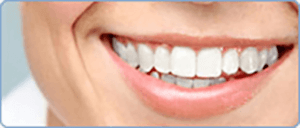 Recently, we have been hearing questions from our patients about alternative means of teeth whitening. I wanted to discuss two of these alternative options specifically: apple cider vinegar and activated charcoal. In general, teeth can stain over time due to the hardships we place on them. Drinking coffee, tea, soda and other harsh foods can take a toll on our pearly white smiles. Staining happens in two ways, which are known as extrinsic staining and intrinsic staining. Simply put, extrinsic staining occurs on the surface of the exposed enamel while intrinsic staining occurs deep down.
Recently, we have been hearing questions from our patients about alternative means of teeth whitening. I wanted to discuss two of these alternative options specifically: apple cider vinegar and activated charcoal. In general, teeth can stain over time due to the hardships we place on them. Drinking coffee, tea, soda and other harsh foods can take a toll on our pearly white smiles. Staining happens in two ways, which are known as extrinsic staining and intrinsic staining. Simply put, extrinsic staining occurs on the surface of the exposed enamel while intrinsic staining occurs deep down.
When we talk about whitening our teeth, we are usually referring to attacking that extrinsic staining. Many products have been created for consumers to try to eliminate staining and most of these products work by the process of abrasion. In other words, products like whitening toothpastes are very abrasive and can actually remove minor amounts of tooth structure when used – but will sometimes also result in whiter teeth. Although there haven’t been many studies on the success of activated charcoal in toothpaste, the mechanism by which it works is similar to the same mechanism used in other abrasive toothpastes. However, in contrast to tooth whitening toothpastes, activated charcoal toothpastes have not been examined or approved by the ADA and too much abrasion can damage your teeth if used as a prolonged alternative to recommended toothpastes.
When considering apple cider vinegar as a mouth rinse and tooth whitening agent, the studies are also absent and its use is strongly discouraged. Vinegar is a common name for its proper name, acetic acid. Just like any other acid, anything acidic should be avoided as a long-term rinse as acidic food and drink will shift the environment in your mouth that may lead to the softening and subsequent erosion of your teeth, which may predispose you to a higher risk for tooth decay. If this is the last thing you do before bed, you are letting your teeth sit in an acidic environment while you sleep. Additionally, if you are brushing your teeth afterwards, the effects can also be damaging as you are gradually brushing your teeth away.
If you are interested in tooth whitening, both in terms of continued use and long-lasting results, custom-fitted whitening trays remain the gold standard. Although whitening gels can cause temporary sensitivity, the mechanism used does not damage your teeth and the results last much longer than other over-the-counter alternatives. Additionally, Cascadia Dentistry offers products than have been shown to reduce or eliminate even the smallest amount of post-whitening sensitivity.
If you’re interested in whitening your teeth, we are here to discuss it further and help you get started!
To schedule an appointment, please call Cascadia Dentistry in Stanwood: (360) 629-7229

 In December 2012, the American Academy of Orthopedic Surgeons (AAOS) and the American Dental Association (ADA) collaboratively announced revised guidelines on the use of antibiotics as a means to prevent the infection of prosthetic joints. The most recent guidelines no longer recommend the routine use of antibiotics in most cases of patients with artificial joints. This revision to existing best practices has been slow to reach the general public. In summary, based on considerable research (
In December 2012, the American Academy of Orthopedic Surgeons (AAOS) and the American Dental Association (ADA) collaboratively announced revised guidelines on the use of antibiotics as a means to prevent the infection of prosthetic joints. The most recent guidelines no longer recommend the routine use of antibiotics in most cases of patients with artificial joints. This revision to existing best practices has been slow to reach the general public. In summary, based on considerable research (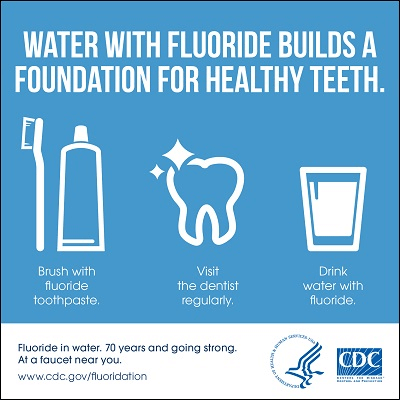 I recently had a discussion with a friend of mine as I gave my son his daily fluoride drops. After I was done, my friend looked at me with a puzzled expression and asked me why I would give my son fluoride because she had heard that fluoride is toxic. As a dentist, I hear this view fairly often and it’s frustrating because I immediately want to start presenting all the research touting the major benefits of fluoride supplements in children without coming off as overbearing. In my friends’ case, I very confidently answered her that I was doing my son a favor by giving him fluoride supplements to reduce his future risk for tooth decay because our local drinking water is not fluoridated. Because this is such a common concern, I’d like to take a moment to further explain myself and offer a few points for parents of young children to consider.
I recently had a discussion with a friend of mine as I gave my son his daily fluoride drops. After I was done, my friend looked at me with a puzzled expression and asked me why I would give my son fluoride because she had heard that fluoride is toxic. As a dentist, I hear this view fairly often and it’s frustrating because I immediately want to start presenting all the research touting the major benefits of fluoride supplements in children without coming off as overbearing. In my friends’ case, I very confidently answered her that I was doing my son a favor by giving him fluoride supplements to reduce his future risk for tooth decay because our local drinking water is not fluoridated. Because this is such a common concern, I’d like to take a moment to further explain myself and offer a few points for parents of young children to consider.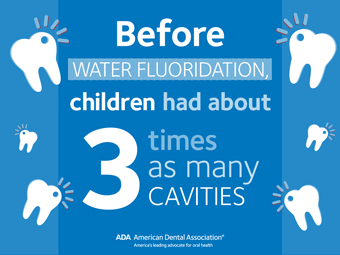 On the other hand, dental decay is endemic and is a very serious health concern that many children and adults face. Dental decay can lead to pain and premature tooth loss and can be debilitating to many children and adults alike. Yet fluoride consumed as a child brings down that persons’ lifelong risk for dental decay in their permanent teeth. Simply put, a child who orally consumes fluoride at the recommended levels, results in fluoride integrating into that child’s adult teeth as they develop which helps reduce future risk for tooth decay – certainly a major benefit to that child as they age.
On the other hand, dental decay is endemic and is a very serious health concern that many children and adults face. Dental decay can lead to pain and premature tooth loss and can be debilitating to many children and adults alike. Yet fluoride consumed as a child brings down that persons’ lifelong risk for dental decay in their permanent teeth. Simply put, a child who orally consumes fluoride at the recommended levels, results in fluoride integrating into that child’s adult teeth as they develop which helps reduce future risk for tooth decay – certainly a major benefit to that child as they age.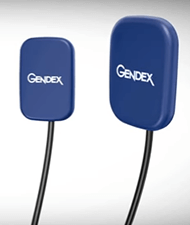
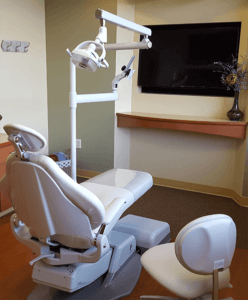
 It’s been over two months now since I joined the Cascadia Dentistry team so I wanted to take a moment to say hello to my new patients; to those that have already entrusted me with their dental care and to those I have not yet had the opportunity to meet personally. Every day I am reminded how friendly and welcoming this community is which just adds confidence to my decision to move my family to the Arlington-Stanwood area. You really have a wonderful community and I am eager to learn more about each of you and what our community has to offer.
It’s been over two months now since I joined the Cascadia Dentistry team so I wanted to take a moment to say hello to my new patients; to those that have already entrusted me with their dental care and to those I have not yet had the opportunity to meet personally. Every day I am reminded how friendly and welcoming this community is which just adds confidence to my decision to move my family to the Arlington-Stanwood area. You really have a wonderful community and I am eager to learn more about each of you and what our community has to offer.